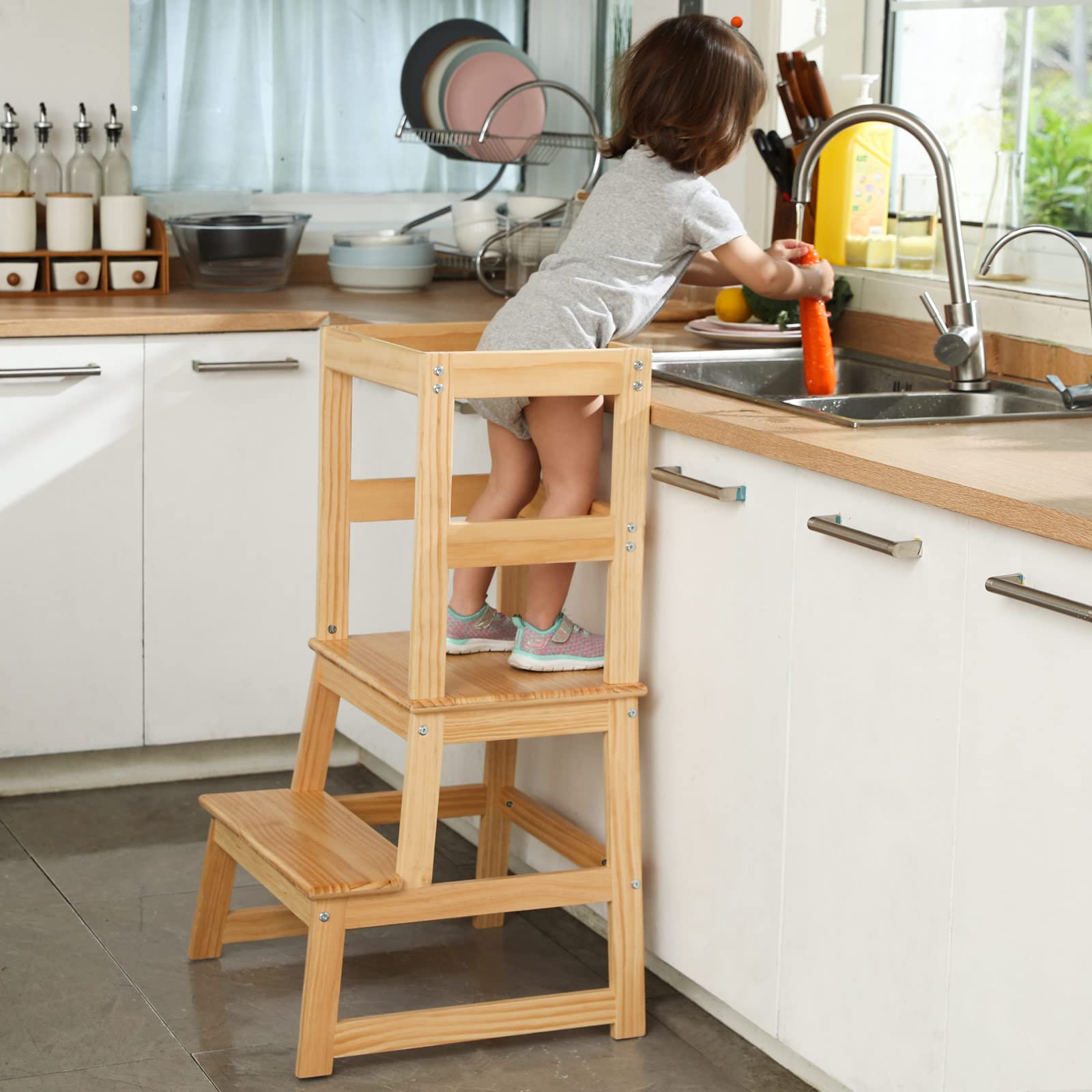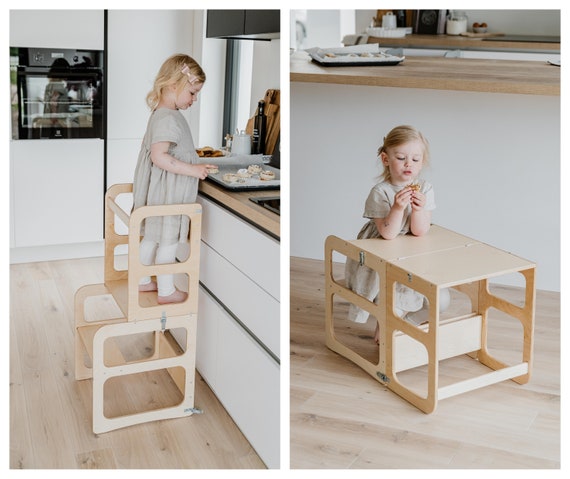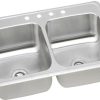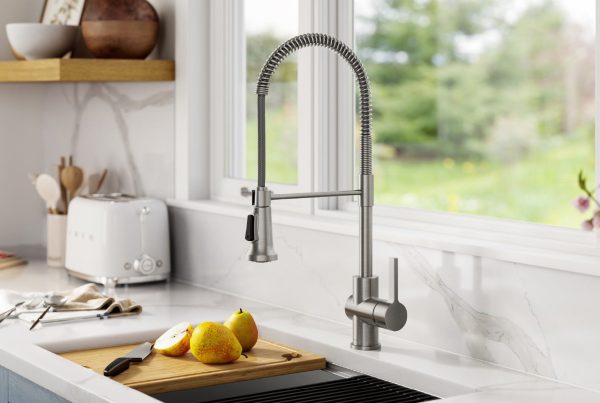Tips Montessori Kitchen Instructions: Follow these concise guidelines to implement Montessori principles in the kitchen effectively. Montessori education empowers children to be independent, self-reliant, and responsible.
The kitchen, a vital part of our daily lives, offers an excellent opportunity to apply Montessori principles in a practical setting. By incorporating child-sized tools, fostering a sense of order and cleanliness, encouraging hands-on participation, and allowing freedom of choice, we can create a supportive environment that promotes learning and personal growth.
We will explore tips and instructions for setting up a Montessori-inspired kitchen to help your child develop important life skills, ignite their curiosity, and cultivate a love for cooking.
Introduction
The Montessori method is renowned for its child-centric approach to education. It emphasizes independence, hands-on learning, and a prepared environment. Applying these principles to your kitchen can be a game-changer, not only for your child’s development but for the entire family. Let’s dive into the world of Tips Montessori Kitchen Instructions and discover how to nurture young minds while preparing meals together.
Setting the Stage: Organize Your Kitchen
Creating Child-Accessible Spaces
One of the fundamental Tips for Montessori Kitchen Instructions is to make your kitchen accessible to children. Lower shelves, child-sized utensils, and step stools empower them to participate actively in kitchen activities.
Child-Friendly Storage Solutions
Invest in low, open shelves and clear containers to store snacks, dishes, and utensils. This encourages children to choose their snacks and practice self-serving.
Labeling and Artwork
Use picture labels for containers and drawers to help non-readers identify items. Decorate the kitchen with your child’s artwork, fostering a sense of ownership and pride in their space.
Hands-On Learning: Involving Children in Food Preparation
Cooking Together
Cooking is an educational experience. Involve your child in simple food preparation tasks like washing vegetables, stirring, and measuring ingredients. It enhances their motor skills and math concepts.
Grow a Mini Herb Garden
Teach your child about plants by growing herbs in the kitchen. They can water, observe growth, and use the herbs in cooking, connecting with nature and their food.
Setting the Table
Allow your child to set the table independently. Provide child-friendly dishes, utensils, and glasses to encourage responsibility during mealtime.
Encouraging Independence: Self-Service Stations
Snack Station
Create a snack station with healthy options at your child’s eye level. They can choose snacks independently, promoting decision-making skills.
Breakfast Bar
Set up a breakfast bar with cereal, bowls, and milk. Your child can prepare their breakfast, fostering self-reliance.
Hydration Station
Keep a low water dispenser or pitcher with cups for your child to access water whenever they’re thirsty.
Tips Montessori Kitchen Instructions
In this section, we’ll delve into specific Tips Montessori Kitchen Instructions that will transform your kitchen into an educational haven:
Child-Safe Tools
Provide child-safe knives, peelers, and graters to teach essential kitchen skills safely.
Sensory Activities
Engage your child’s senses with activities like kneading dough, smelling herbs, or tasting different ingredients.
Real Utensils
Use real utensils instead of plastic ones to promote responsibility and refine motor skills.
Child-Accessible Fridge
Dedicate a lower shelf in the fridge for your child’s snacks and lunch items.
Teach Cleanup
Incorporate cleaning up into the routine. Teach your child to wash dishes and wipe down surfaces.

Credit: www.amazon.com
Frequently Asked Questions Of Tips Montessori Kitchen Instructions
When Should I Start My Montessori Kitchen?
Start your Montessori kitchen when your child is ready to explore practical life skills.
What Is The Difference Between A Montessori Kitchen And A Play Kitchen?
A Montessori kitchen is designed for practical life skills, while a play kitchen is purely for imaginative play.
What Are The Skills Of Cooking In Montessori?
Montessori cooking skills include knife safety, food preparation, following recipes, and basic cooking techniques.
What Is A Montessori Functional Kitchen?
A Montessori functional kitchen is a kitchen designed to help children develop practical life skills.
Faq 1: What Is Montessori Kitchen Education?
Montessori kitchen education is a method that empowers children to actively participate in meal preparation and learn important life skills.
Faq 2: How Can A Montessori Kitchen Promote Independence?
By encouraging children to handle simple kitchen tasks, a Montessori kitchen helps them develop self-confidence, fine motor skills, and independence.
Faq 3: What Age Is Appropriate For A Montessori Kitchen?
A Montessori kitchen can be introduced to children as young as 2 or 3 years old, depending on their developmental readiness and supervision.
Conclusion
To conclude, implementing Montessori principles in the kitchen can greatly benefit both children and parents. By providing a child-friendly environment where kids can safely engage in meal preparation, they develop crucial life skills such as independence, responsibility, and problem-solving. Through hands-on experiences with cooking and serving their meals, children not only gain a sense of accomplishment but also develop a healthy relationship with food.
By allowing children to make choices and take ownership of their kitchen tasks, parents foster self-confidence and foster a love for cooking and healthy eating. Moreover, the Montessori approach encourages family bonding and shared household responsibilities, creating a positive and collaborative atmosphere.
So, whether it’s arranging the kitchen space, setting up child-sized utensils, or involving children in meal planning, Montessori kitchen instructions provide a holistic approach to raising self-reliant and confident individuals. Start implementing these tips today, and watch your child thrive in the kitchen!










